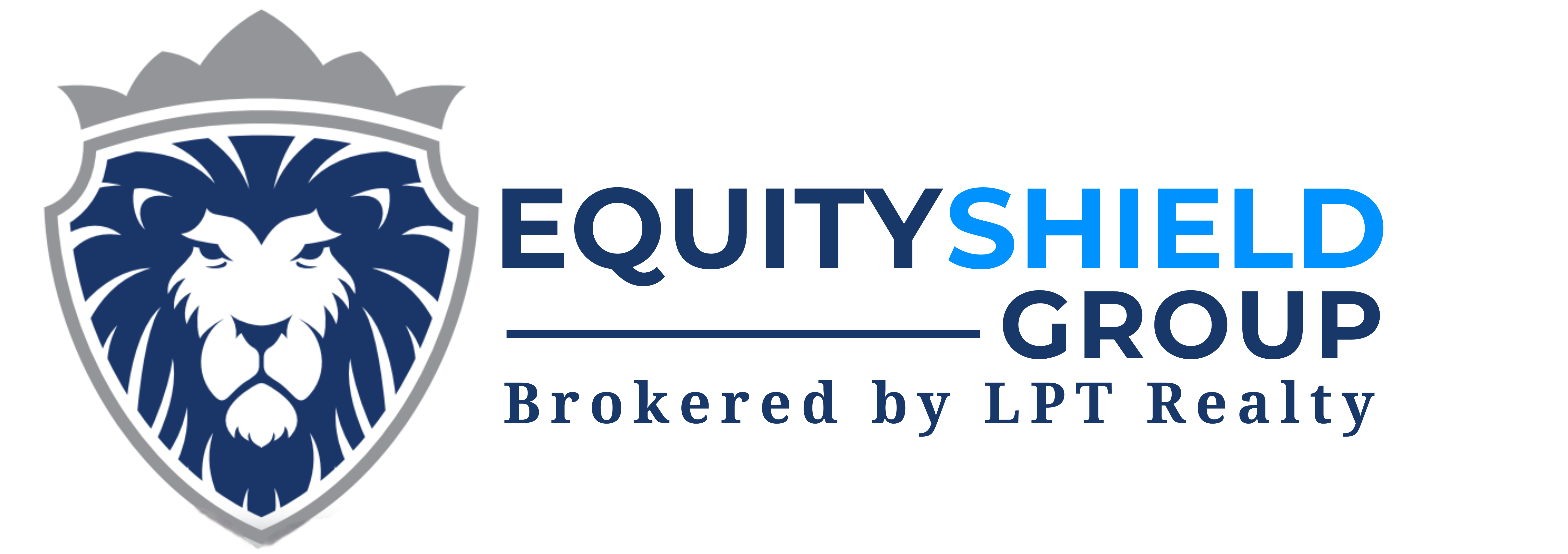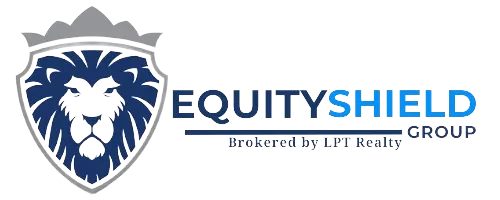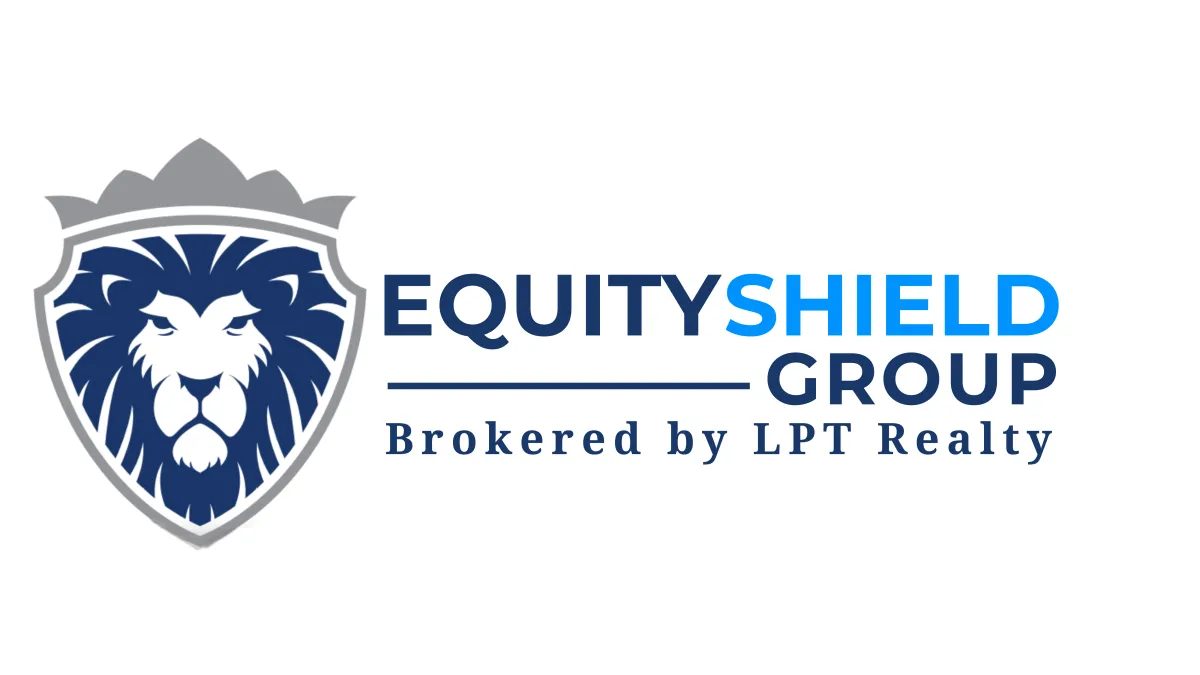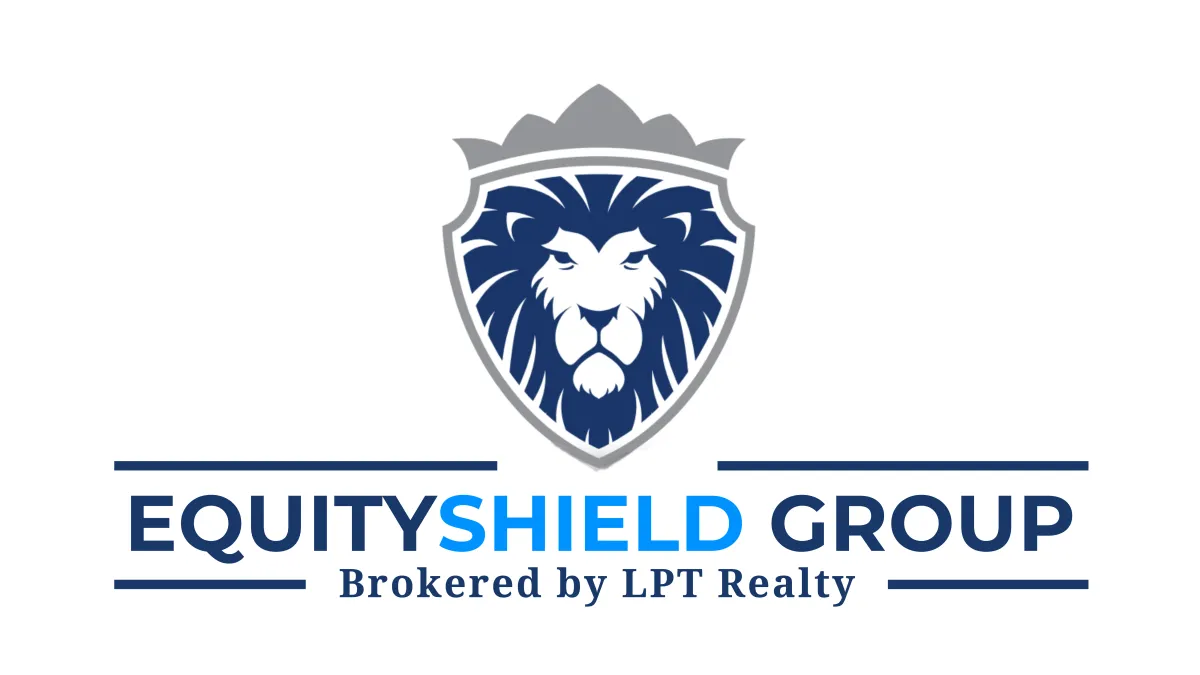
- HOME
- SERVICES
- BUYERS
- SELLERS
- EQUITYSHIELD OFFERS
-
CAREERS
Starting Your Career Is Real Estate Right For You? LPT Realty Apprenticeship Program Real Estate School (Coming Soon) Apply NowAlready Licensed Apply Now
- ABOUT
- MEDIA
- CONTACT US
Buyers Glossary of Terms

Buyers Glossary of Terms
Welcome to EquityShield Group's comprehensive Buyer's Glossary of Terms, your essential guide to navigating the home-buying process with confidence and clarity. Whether you're a first-time buyer or an experienced investor, our glossary simplifies key real estate concepts to empower your journey to homeownership.
Acceptance
Welcome to EquityShield Group's comprehensive Buyer's Glossary of Terms, your essential guide to navigating the home-buying process with confidence and clarity. Whether you're a first-time buyer or an experienced investor, our glossary simplifies key real estate concepts to empower your journey to homeownership.
Agent
An agent is someone legally authorized to represent another person, known as the principal. In real estate, an agent acts on behalf of the buyer or seller, facilitating transactions and providing professional advice.
Amortization
Amortization refers to paying off a loan through regular, periodic payments that cover both interest and principal. The interest is the cost of borrowing, while the principal is the original amount borrowed.
Annual Percentage Rate (APR)
The APR is a standardized way of showing the total cost of borrowing money, including the interest rate and any associated fees. It provides a comprehensive view of the loan's cost.
Appraisal
An appraisal is a professional assessment of a property's market value, conducted by a qualified appraiser. This written estimate helps determine the property's worth at a specific point in time.
Buyer’s Agent
A buyer’s agent represents the buyer in a real estate transaction, ensuring their interests are protected throughout the home buying process. They provide valuable guidance and negotiate on behalf of the buyer.
Closing
Closing, also known as settlement, is the final step in a real estate transaction. It involves signing necessary documents, transferring ownership, and disbursing funds to complete the sale.
Closing Costs
These are additional expenses incurred during a real estate transaction, including loan origination fees, insurance, survey fees, and attorney fees. These costs vary by location and are disclosed when you apply for a mortgage.
Comparable Market Analysis (CMA)
A CMA is conducted to determine a property's value by comparing it to similar properties recently sold in the area. This analysis helps set a fair market price.
Condominium
A condominium is a form of homeownership where the buyer owns the interior space of a unit and shares ownership of common areas, such as parking lots and pools, with other residents.
Contract of Sale
A contract of sale is a legal agreement between a buyer and seller outlining the terms of the property sale, including conditions and payment details.
Conventional Loan
A conventional loan is a mortgage not guaranteed or insured by the government, typically requiring higher credit scores and larger down payments.
Co-operative Housing
In co-operative housing, a corporation owns the property, and residents purchase shares that grant them occupancy rights through proprietary leases.
Credit Report
A credit report details your credit history, compiled by credit bureaus. Lenders use it to evaluate your creditworthiness when deciding to grant a loan.
Deed
A deed is a legal document proving ownership of real property. It is recorded with the local government, becoming a public record.
Deed of Trust
A deed of trust involves a third party holding the property title as security for a loan. If the borrower defaults, the trustee sells the property to repay the debt.
Department of Housing and Urban Development (HUD)
HUD oversees federal housing and urban development programs, including mortgage insurance and construction standards.
Discount Point
A discount point is a fee paid to a lender to reduce the interest rate on a mortgage. One point equals one percent of the loan amount.
Down Payment
A down payment is the initial portion of the sale price paid upfront by the buyer. It represents the difference between the sale price and the mortgage amount.
Earnest Money
Earnest money is a deposit made by the buyer to show serious intent to purchase. It is held in escrow and applied to the down payment at closing.
Encumbrance
An encumbrance is any claim or restriction on a property, such as mortgages, leases, or easements, that may affect its title.
Equity
Equity is the difference between the market value of a property and the remaining mortgage balance, representing the owner's net ownership interest.
Escrow
Escrow involves a third party holding funds or documents until specific conditions are met. It is used during the transaction to manage payments and fees.
Fannie Mae
Fannie Mae is a major mortgage investor supporting the secondary mortgage market. It purchases and securitizes mortgages, providing liquidity to lenders.
Federal Housing Administration (FHA)
The FHA, part of HUD, provides mortgage insurance for loans made by approved lenders, facilitating homeownership for those with lower down payments.
FHA-Insured Loans
These are mortgages insured by the FHA, offering lower down payments and more flexible lending standards.
First Mortgage
A first mortgage has priority over other liens on a property, meaning it must be paid off first in the event of default.
Fixed Interest Rate
A fixed interest rate remains constant for the entire loan term, providing predictable monthly payments.
Foreclosure
Foreclosure is a legal process allowing lenders to sell a property to recover unpaid debts when the borrower defaults on the mortgage.
Freddie Mac
Freddie Mac, also known as the Federal Home Loan Mortgage Corporation, supports the secondary mortgage market by purchasing and securitizing mortgages.
FSBO (For Sale By Owner)
FSBO refers to properties sold directly by the owner without using a real estate agent, aiming to save on commission fees.
Good Faith Estimate (GFE)
A GFE provides an estimate of closing costs and fees associated with a mortgage, helping borrowers understand their financial obligations.
Home-Equity Line of Credit (HELOC)
A HELOC is a revolving credit line secured by the home, allowing the owner to borrow as needed up to a set limit.
Home-Equity Loan
Also known as a second mortgage, this loan allows homeowners to borrow against their equity, typically with fixed terms and payments.
Home Inspection
A thorough evaluation of a home's condition, assessing systems and structural integrity. It should be completed before purchase and contingent on satisfactory results.
Homeowners’ Association (HOA)
An HOA manages common areas and services in a planned development or condominium. It may hold title to common areas in some developments.
Homeowner’s Warranty (HOW) Program
The HOW program provides warranties on new homes, covering workmanship, materials, and structural defects for a specified period.
Interest
Interest is the cost of borrowing money, expressed as an annual percentage of the loan amount.
Interest Rate
The interest rate is the percentage charged annually on a loan's outstanding balance, determining the cost of borrowing.
Lender
A lender is a financial institution or agency that provides loans to borrowers.
Lien
A lien is a legal claim on a property as security for a debt, giving the creditor rights to the property if the debt is not paid.
Loan Origination Fee
A fee charged by lenders for processing a loan, typically a percentage of the loan amount.
Loan Servicing
Loan servicing involves managing a loan, including collecting payments, managing escrow accounts, and disbursing funds.
Loan-to-Value Ratio (LTV)
LTV is the ratio of the loan amount to the property's appraised value or sale price, expressed as a percentage.
Lock-In Period
The period during which a lender guarantees a specific interest rate and terms on a mortgage.
Market Value
Market value is the highest price a buyer is willing to pay and a seller is willing to accept, reflecting the property's worth in the open market.
Mortgage
A mortgage is a legal document pledging real property as security for a loan.
Mortgage Banker
A mortgage banker originates, sells, and services loans secured by real property.
Mortgage Broker
A mortgage broker matches borrowers with lenders, earning a commission for facilitating the loan process.
Mortgagee
The lender in a mortgage transaction.
Mortgagor
The borrower in a mortgage transaction who pledges property as security for the debt.
Multiple Listing Service (MLS)
An MLS provides access to a database of real estate listings, facilitating property searches and sales.
PITI
PITI stands for principal, interest, taxes, and insurance, representing the components of a typical mortgage payment.
Point
A point is one percent of the mortgage loan amount, often paid to reduce the loan's interest rate.
Pre-approval
Pre-approval is a written commitment from a lender to provide a loan, based on an evaluation of the buyer's financial status.
Prepaid Items
Prepaid items are costs paid at closing, such as taxes, interest, and insurance, not directly related to the property's purchase price.
Prepayment Penalty
A fee charged for paying off a loan before its due date, not applicable to all loans.
Pre-qualification
An initial evaluation of a potential borrower's financial status to estimate the mortgage amount they can afford.
Principal
Principal is the original loan amount or remaining balance, excluding interest.
Private Mortgage Insurance (PMI)
PMI is insurance protecting the lender against borrower default, required for loans with less than 20% down payment.
Property Tax
A tax paid to local and state governments for owning property within their jurisdiction.
Real Estate Settlement Procedures Act (RESPA)
RESPA is a federal law requiring the disclosure of settlement costs in real estate transactions.
Real Property
Real property includes land and permanent structures attached to it.
Refinancing
Refinancing involves paying off an existing loan with a new one, often to secure a lower interest rate or better terms.
Second Mortgage
A second mortgage is subordinate to the first mortgage, often used as a home-equity loan.
Secured Debt
Secured debt is tied to specific property as collateral, guaranteeing repayment.
Seller’s Agent
An agent representing the seller in a real estate transaction.
Title
Title is the legal documentation of property ownership.
Title Insurance Policy
Title insurance protects against losses from defects in the title, covering both lenders and buyers.
Townhouse
A townhouse is a multi-story home sharing one or more walls with adjacent properties.
Trust
A trust involves transferring property to a trustee to manage for the benefit of a beneficiary.
Underwriting
Underwriting is the process of assessing risk in granting a mortgage, evaluating the property and borrower’s financial stability.
Upfront Costs
Upfront costs are fees paid before closing, such as appraisal and inspection fees.
VA Loan
VA loans are mortgages guaranteed by the Department of Veterans Affairs, available to eligible veterans and military personnel with favorable terms.
Welcome to EquityShield Group's comprehensive Buyer's Glossary of Terms, your essential guide to navigating the home-buying process with confidence and clarity. Whether you're a first-time buyer or an experienced investor, our glossary simplifies key real estate concepts to empower your journey to homeownership.
Acceptance
Welcome to EquityShield Group's comprehensive Buyer's Glossary of Terms, your essential guide to navigating the home-buying process with confidence and clarity. Whether you're a first-time buyer or an experienced investor, our glossary simplifies key real estate concepts to empower your journey to homeownership.
Agent
An agent is someone legally authorized to represent another person, known as the principal. In real estate, an agent acts on behalf of the buyer or seller, facilitating transactions and providing professional advice.
Amortization
Amortization refers to paying off a loan through regular, periodic payments that cover both interest and principal. The interest is the cost of borrowing, while the principal is the original amount borrowed.
Annual Percentage Rate (APR)
The APR is a standardized way of showing the total cost of borrowing money, including the interest rate and any associated fees. It provides a comprehensive view of the loan's cost.
Appraisal
An appraisal is a professional assessment of a property's market value, conducted by a qualified appraiser. This written estimate helps determine the property's worth at a specific point in time.
Buyer’s Agent
A buyer’s agent represents the buyer in a real estate transaction, ensuring their interests are protected throughout the home buying process. They provide valuable guidance and negotiate on behalf of the buyer.
Closing
Closing, also known as settlement, is the final step in a real estate transaction. It involves signing necessary documents, transferring ownership, and disbursing funds to complete the sale.
Closing Costs
These are additional expenses incurred during a real estate transaction, including loan origination fees, insurance, survey fees, and attorney fees. These costs vary by location and are disclosed when you apply for a mortgage.
Comparable Market Analysis (CMA)
A CMA is conducted to determine a property's value by comparing it to similar properties recently sold in the area. This analysis helps set a fair market price.
Condominium
A condominium is a form of homeownership where the buyer owns the interior space of a unit and shares ownership of common areas, such as parking lots and pools, with other residents.
Contract of Sale
A contract of sale is a legal agreement between a buyer and seller outlining the terms of the property sale, including conditions and payment details.
Conventional Loan
A conventional loan is a mortgage not guaranteed or insured by the government, typically requiring higher credit scores and larger down payments.
Co-operative Housing
In co-operative housing, a corporation owns the property, and residents purchase shares that grant them occupancy rights through proprietary leases.
Credit Report
A credit report details your credit history, compiled by credit bureaus. Lenders use it to evaluate your creditworthiness when deciding to grant a loan.
Deed
A deed is a legal document proving ownership of real property. It is recorded with the local government, becoming a public record.
Deed of Trust
A deed of trust involves a third party holding the property title as security for a loan. If the borrower defaults, the trustee sells the property to repay the debt.
Department of Housing and Urban Development (HUD)
HUD oversees federal housing and urban development programs, including mortgage insurance and construction standards.
Discount Point
A discount point is a fee paid to a lender to reduce the interest rate on a mortgage. One point equals one percent of the loan amount.
Down Payment
A down payment is the initial portion of the sale price paid upfront by the buyer. It represents the difference between the sale price and the mortgage amount.
Earnest Money
Earnest money is a deposit made by the buyer to show serious intent to purchase. It is held in escrow and applied to the down payment at closing.
Encumbrance
An encumbrance is any claim or restriction on a property, such as mortgages, leases, or easements, that may affect its title.
Equity
Equity is the difference between the market value of a property and the remaining mortgage balance, representing the owner's net ownership interest.
Escrow
Escrow involves a third party holding funds or documents until specific conditions are met. It is used during the transaction to manage payments and fees.
Fannie Mae
Fannie Mae is a major mortgage investor supporting the secondary mortgage market. It purchases and securitizes mortgages, providing liquidity to lenders.
Federal Housing Administration (FHA)
The FHA, part of HUD, provides mortgage insurance for loans made by approved lenders, facilitating homeownership for those with lower down payments.
FHA-Insured Loans
These are mortgages insured by the FHA, offering lower down payments and more flexible lending standards.
First Mortgage
A first mortgage has priority over other liens on a property, meaning it must be paid off first in the event of default.
Fixed Interest Rate
A fixed interest rate remains constant for the entire loan term, providing predictable monthly payments.
Foreclosure
Foreclosure is a legal process allowing lenders to sell a property to recover unpaid debts when the borrower defaults on the mortgage.
Freddie Mac
Freddie Mac, also known as the Federal Home Loan Mortgage Corporation, supports the secondary mortgage market by purchasing and securitizing mortgages.
FSBO (For Sale By Owner)
FSBO refers to properties sold directly by the owner without using a real estate agent, aiming to save on commission fees.
Good Faith Estimate (GFE)
A GFE provides an estimate of closing costs and fees associated with a mortgage, helping borrowers understand their financial obligations.
Home-Equity Line of Credit (HELOC)
A HELOC is a revolving credit line secured by the home, allowing the owner to borrow as needed up to a set limit.
Home-Equity Loan
Also known as a second mortgage, this loan allows homeowners to borrow against their equity, typically with fixed terms and payments.
Home Inspection
A thorough evaluation of a home's condition, assessing systems and structural integrity. It should be completed before purchase and contingent on satisfactory results.
Homeowners’ Association (HOA)
An HOA manages common areas and services in a planned development or condominium. It may hold title to common areas in some developments.
Homeowner’s Warranty (HOW) Program
The HOW program provides warranties on new homes, covering workmanship, materials, and structural defects for a specified period.
Interest
Interest is the cost of borrowing money, expressed as an annual percentage of the loan amount.
Interest Rate
The interest rate is the percentage charged annually on a loan's outstanding balance, determining the cost of borrowing.
Lender
A lender is a financial institution or agency that provides loans to borrowers.
Lien
A lien is a legal claim on a property as security for a debt, giving the creditor rights to the property if the debt is not paid.
Loan Origination Fee
A fee charged by lenders for processing a loan, typically a percentage of the loan amount.
Loan Servicing
Loan servicing involves managing a loan, including collecting payments, managing escrow accounts, and disbursing funds.
Loan-to-Value Ratio (LTV)
LTV is the ratio of the loan amount to the property's appraised value or sale price, expressed as a percentage.
Lock-In Period
The period during which a lender guarantees a specific interest rate and terms on a mortgage.
Market Value
Market value is the highest price a buyer is willing to pay and a seller is willing to accept, reflecting the property's worth in the open market.
Mortgage
A mortgage is a legal document pledging real property as security for a loan.
Mortgage Banker
A mortgage banker originates, sells, and services loans secured by real property.
Mortgage Broker
A mortgage broker matches borrowers with lenders, earning a commission for facilitating the loan process.
Mortgagee
The lender in a mortgage transaction.
Mortgagor
The borrower in a mortgage transaction who pledges property as security for the debt.
Multiple Listing Service (MLS)
An MLS provides access to a database of real estate listings, facilitating property searches and sales.
PITI
PITI stands for principal, interest, taxes, and insurance, representing the components of a typical mortgage payment.
Point
A point is one percent of the mortgage loan amount, often paid to reduce the loan's interest rate.
Pre-approval
Pre-approval is a written commitment from a lender to provide a loan, based on an evaluation of the buyer's financial status.
Prepaid Items
Prepaid items are costs paid at closing, such as taxes, interest, and insurance, not directly related to the property's purchase price.
Prepayment Penalty
A fee charged for paying off a loan before its due date, not applicable to all loans.
Pre-qualification
An initial evaluation of a potential borrower's financial status to estimate the mortgage amount they can afford.
Principal
Principal is the original loan amount or remaining balance, excluding interest.
Private Mortgage Insurance (PMI)
PMI is insurance protecting the lender against borrower default, required for loans with less than 20% down payment.
Property Tax
A tax paid to local and state governments for owning property within their jurisdiction.
Real Estate Settlement Procedures Act (RESPA)
RESPA is a federal law requiring the disclosure of settlement costs in real estate transactions.
Real Property
Real property includes land and permanent structures attached to it.
Refinancing
Refinancing involves paying off an existing loan with a new one, often to secure a lower interest rate or better terms.
Second Mortgage
A second mortgage is subordinate to the first mortgage, often used as a home-equity loan.
Secured Debt
Secured debt is tied to specific property as collateral, guaranteeing repayment.
Seller’s Agent
An agent representing the seller in a real estate transaction.
Title
Title is the legal documentation of property ownership.
Title Insurance Policy
Title insurance protects against losses from defects in the title, covering both lenders and buyers.
Townhouse
A townhouse is a multi-story home sharing one or more walls with adjacent properties.
Trust
A trust involves transferring property to a trustee to manage for the benefit of a beneficiary.
Underwriting
Underwriting is the process of assessing risk in granting a mortgage, evaluating the property and borrower’s financial stability.
Upfront Costs
Upfront costs are fees paid before closing, such as appraisal and inspection fees.
VA Loan
VA loans are mortgages guaranteed by the Department of Veterans Affairs, available to eligible veterans and military personnel with favorable terms.
Contact Us
Let's Talk
We're excited to address any inquiries you have and explore opportunities to expand your business with EquityShield Group!
Premium Property Marketing Package
$5,000
Full Service, Professional Agent Representation
Professional Photography
Immersive 3D Tour and Floorplan
Professional Home Staging
Print Marketing
Social Media Advertising
Pre-Listing Home Inspection
Property Highlight Video
750 Direct Mailers Sent to Community
Listing Exposure Digital Campaign
Luxury Property Marketing Package
$8,000
All Premium Tier Services
Multiple 1 Month Billboard Placements
Multi-State Broker Marketing
Luxury Digital Marketing Campaign
Placement on LPT Luxury Collection Website
Free Property Appraisal
Contact Us
Let's Talk
We're excited to address any inquiries you have and explore opportunities to expand your business with EquityShield Group!
210-202-4015
18911 Hardy Oak Blvd. Ste 145 San Antonio, Texas 78258
© 2024 - EquityShield Group

210-202-4015
18911 Hardy Oak Blvd. Ste 145 San Antonio, Texas 78258
© 2024 - EquityShield Group

